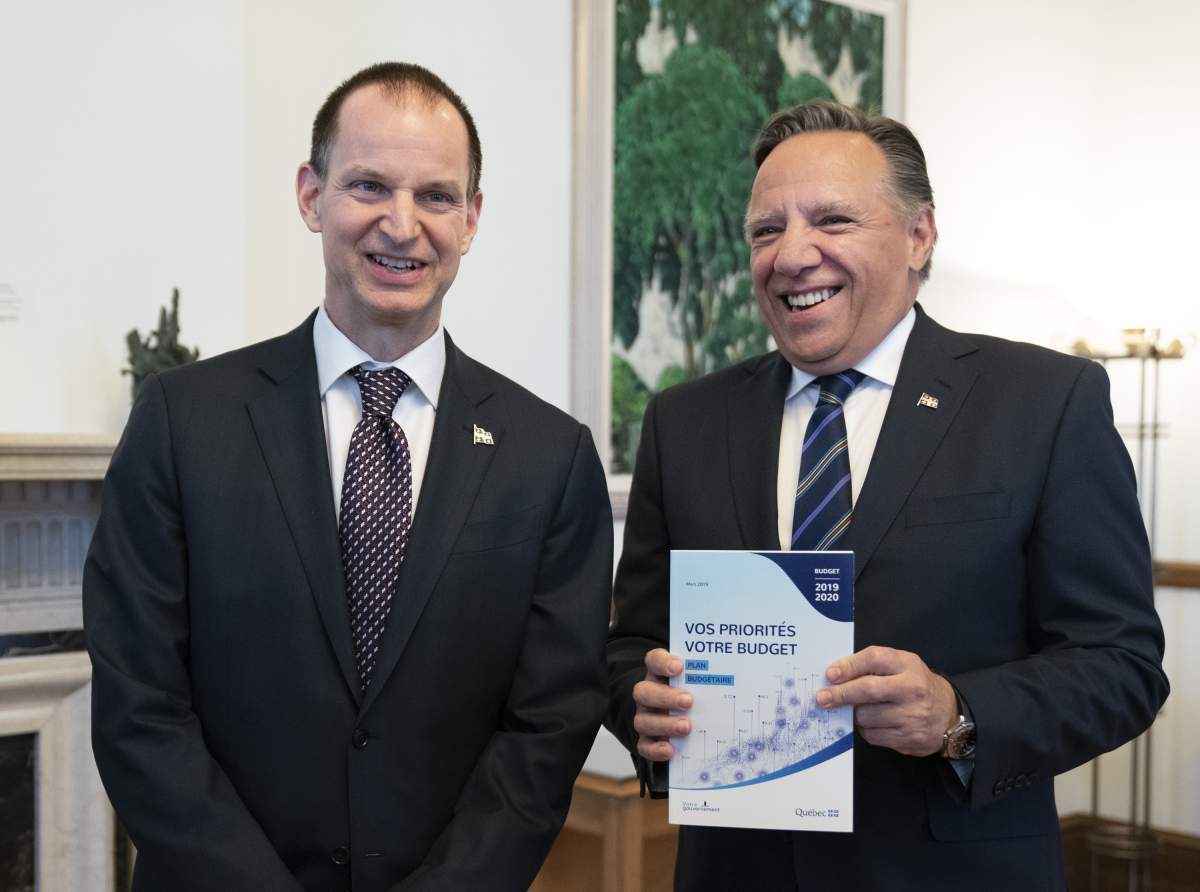Some economy experts agree: the Quebec budget is good.

You won’t be paying more taxes and you will likely be keeping your job, as small businesses are getting a tax cut.
“The real test was was: will we be confident tomorrow that the relaunching will be a success? I think this budget helps in feeling that confidence, that it’ll be alright,” said Michel Leblanc, president and CEO of the Chamber of Commerce of Metropolitan Montreal, a private economic development organization.
Leblanc says investments are hitting the right areas.
The province is helping vulnerable industries that have been hard hit during the pandemic, such as tourism, culture and aerospace. But it’s also putting money towards tech and IT.
“It’s the right blend,” Leblanc told Global News.
In order to jumpstart the economy, Quebec is banking on infrastructure spending. Leblanc says that’s good, but details are missing.
For example, Leblanc says it’s still unknown whether the province set money aside to help build the REM station at Montréal-Pierre Elliott Trudeau International Airport.
Also unclear, Leblanc says, is how much money is coming to Montreal, the epicentre of the pandemic.

Get daily National news
Montreal mayor Valérie Plante called the budget a “good post-COVID” budget.
But she says the city is not getting all the help it needs.
“I was hoping there would be something strong about the economic development especially in the East, knowing that we will be moving forward with the REM de l’Est, (where) we need to decontaminate, for example,” Plante said.
Plante is also disappointed about funding for affordable housing.
The province is committing enough money to build 500 new units — only a third of what the city says is needed.
“We know how it’s been difficult in Montreal in the past years but especially with COVID,” Plante explained.
As for the huge $12.3-billion deficit this year, experts say it’s not of great concern.
“In the grand scheme of things, it’s not the end of the world, especially if that’s the number after a year-long pandemic,” said Moshe Lander, a Concordia University economics professor. “I’m not losing sleep over that.”
Both Lander and Leblanc are optimistic about the province’s future.
“Ahead of us are brighter times,” Leblanc said.









Comments
Want to discuss? Please read our Commenting Policy first.